Ridiculous deaths of kings and monarchs
Categories: Asia | Europe | History
By Pictolic https://pictolic.com/article/ridiculous-deaths-of-kings-and-monarchs.htmlI choked, laughed, hit the jamb... the death of all-powerful monarchs was far from as pathetic as their life…
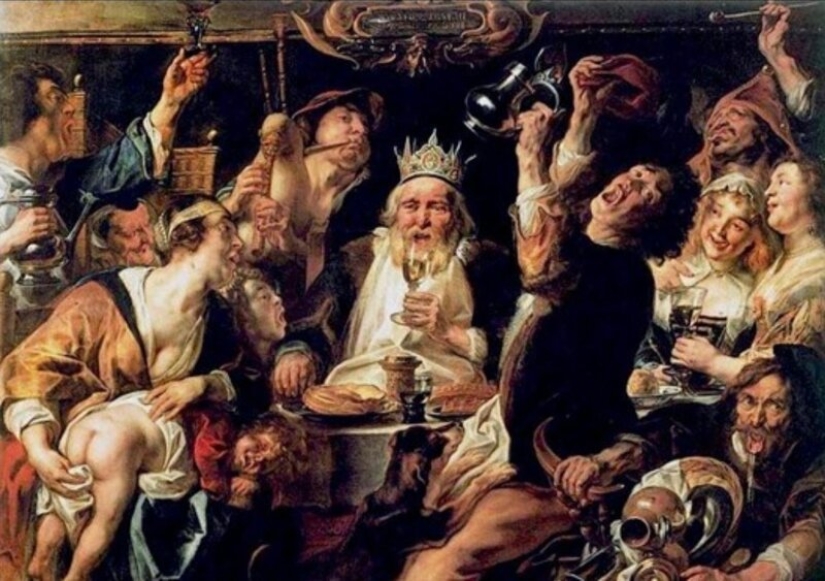
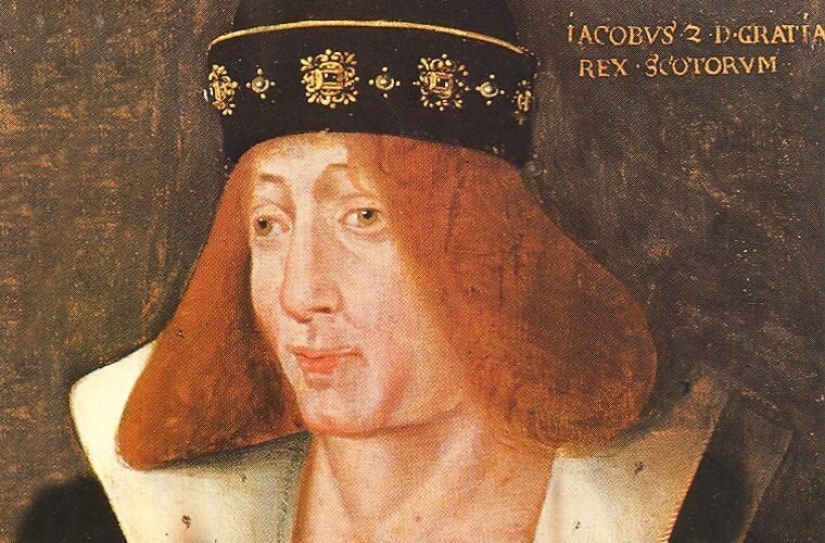
James II of Scotland, 1460: cannon
James II became king at the age of six, after the death of his father James I, who was helped to go to the next world by ungrateful relatives who also longed for the throne. The nobility was outraged, the conspirators were arrested and executed, and almost a baby was raised to the throne.
The baby grew up smart and grasping beyond his years, after reaching adulthood, he actively took up the restructuring of his army. Yes, he succeeded so well that in a couple of years he won back all the fortresses captured by the British.
Yakov was a passionate admirer of artillery and personally supervised the introduction of new guns and firing techniques. The last remaining fortress under the control of England — Roxburgh Castle-was besieged in August 1460. 29-year-old Yakov stood at the "Lion" cannon and directed the shooting, but the volley after the command was not heard — the "Lion" simply exploded.
Fragments of the cannon, according to Robert Lindsay, hit the royal pistol, and also riddled him.

Charles VIII, France, 1448: door jamb
Amboise Castle, April 7, 1498. On a fine Saturday afternoon, on the eve of Palm Sunday, the 27-year-old king after a meal went down to the castle moat — from here you could clearly see the tennis match taking place near the walls.
Together with his wife Anne of Brittany, the monarch strolled through the gallery on his way to the exit. The doorway had a small height, and Karl did not lean enough and hit the upper bar of the opening hard. The king fell and fainted, bleeding profusely. However, it seemed that everything had passed.
The servants carried the king inside and placed him on a hastily found mattress. For nine hours he struggled between oblivion and reality, trying to say something. Death was recorded from apoplexy.

Frederick, Prince of Wales, 1751: blood poisoning after playing cricket
Frederick never managed to be the king of Great Britain — his father George II outlived his son by three years. If the prince wasn't such a cricket fan, he might well have tried on the crown.
Frederick was a German by birth and lived in Hanover until 1727. Having received the status of the Crown Prince of Britain, he moved to London, and here, trying to assimilate as quickly as possible, he became interested in the popular game — cricket. He sponsored teams, placed bets, attended matches and, of course, played himself, without missing a single event related to the game.
In one of these games, he was hit by a ball, which caused an abscess with subsequent blood poisoning. On March 6, 1751, Frederick became ill, and on March 20, the prince died.
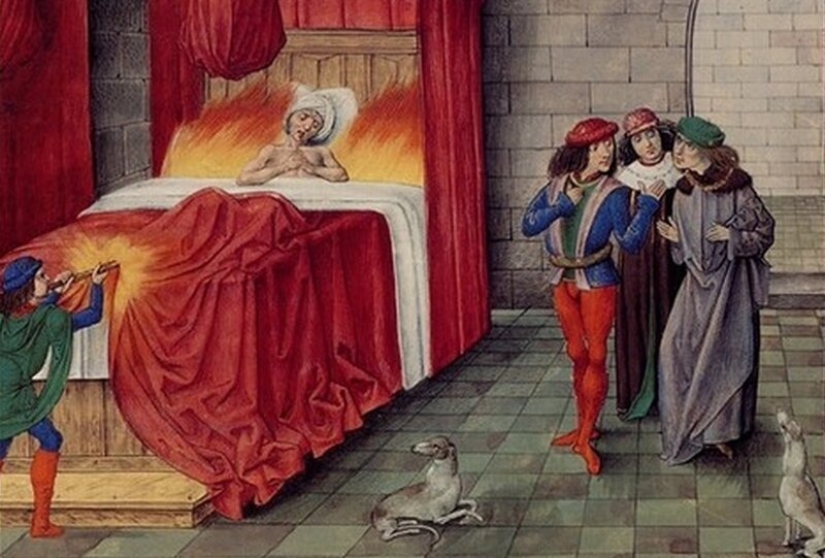
King Charles II of Navarre, 1386: burned by a servant's candle
At the end of 1386, the king's health began to deteriorate rapidly — it reached the point that the monarch could not fully move his limbs. The doctor prescribed treatment-wrapping with a linen cloth soaked in brandy.
The maid wrapped the master up and began to sew up the fabric. So she made a kind of cocoon. When she reached the neck, the girl stopped — it was necessary to remove the thread. It happened at night, and she was afraid to accidentally cut the king with scissors. Therefore, I decided to remove the thread with a burning candle.
The brandy impregnation flared up, and the girl ran out of the room screaming. King Charles II of Navarre was burned alive on January 1, 1387 because of a candle, brandy and thread. At least this interpretation of 1801 is known to us from Francis Blagdon.
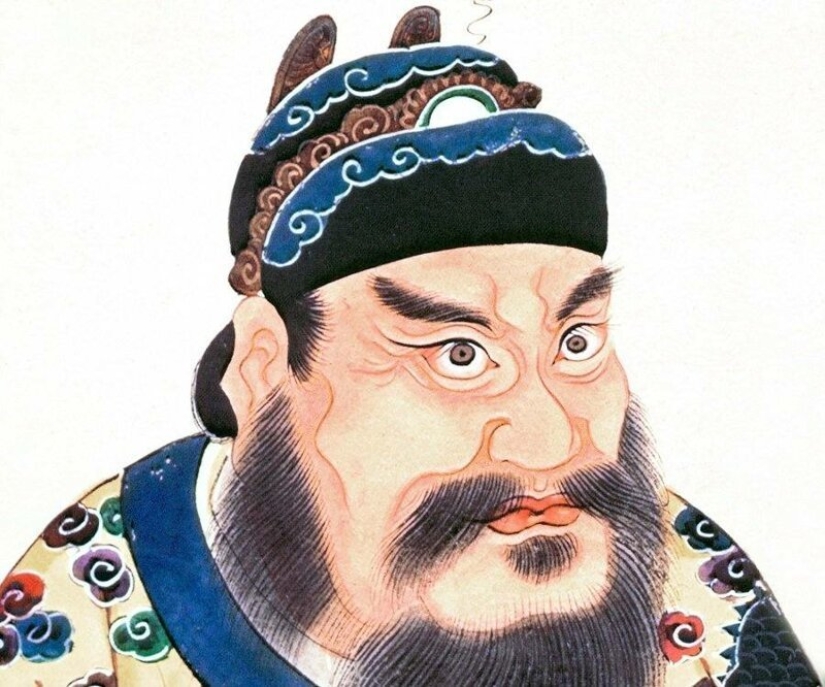
Qin Shi Huang, 210 BC: drank mercury
The Great Emperor was able to stop the Warring States era and create a centralized Chinese state. The construction of the Great Wall of China, the Lingqu Canal, and the Epan Palace is associated with his name. Most of all, Qin Shi Huang was afraid of death and was seriously engaged in the search for the elixir of immortality.
Qin Shi Huang took the remedy and became immortal: mercury was in the composition of the remedy.

Martin I, King of Aragon, 1410: laughed to death
A man whose possessions were scattered all over the Mediterranean, proved by his own example that laughter kills.
On May 31, 1410, the monarch hosted a festive dinner at the castle. Receiving a large number of guests, Martin I provided them with bread and circuses. Jokes at that time were simple, and people were open and direct.
In response to the jester's story about how he saw a deer hanging on its tail in a vineyard, "as if he was being punished for stealing figs," the monarch laughed and laughed until he was asphyxiated.
They say that this was helped by indigestion, which he suffered for several days due to intemperance in eating eels.
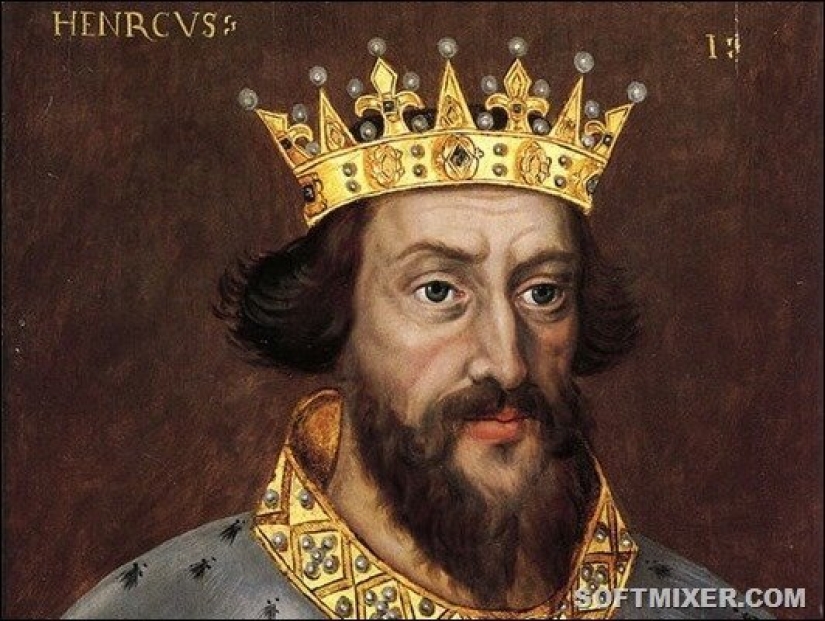
Henry II, France, 1559: jousting tournament
The so-called Italian Wars lasted for 65 years. From 1494 to 1559, France, Spain and The Holy Roman Empire fought for supremacy over the Italian lands and superiority in the The Mediterranean Sea.
The wars began before the birth of Henry II, but it was he who was destined to end the bloodshed. The conclusion of the Cato-Cambresian peace was the most important achievement of the King of France.
In July 1559, Henry combined the conclusion of peace and the wedding of his daughter Elizabeth of Valois into one holiday. The crown of the celebrations was a three-day jousting tournament. On the second day, the King of France himself went out to fight against the Norman Count Montgomery.
The horsemen donned armor, armed themselves with long spears and began to quickly approach. Montgomery slammed his spear into Henry's chest, and the weapon shattered on the shell. But now the fragments of the spear pierced the king's face and entered through the eye into the brain.
For several days, leading doctors fought for the life of Henry II, but to no avail.
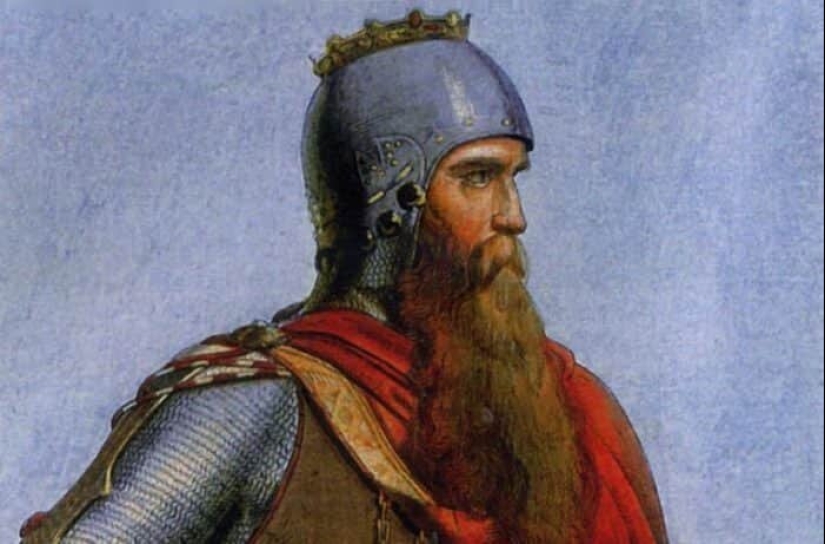
Frederick I Barbarossa, 1190: drowned in a knee-deep river
In 1190, the famous crusader and conqueror of the infidels was already 68 years old. But Frederick was about to embark on a new, third crusade.
After taking several fortresses on the way to the Holy Land (including the Konya fortress), Barbarossa's army reached the Kalikadn River (today Geksu, flowing in southern Turkey). With the help of Armenian guides, the crusaders found a suitable ford and began crossing, carefully searching for a way along the rocky bottom.
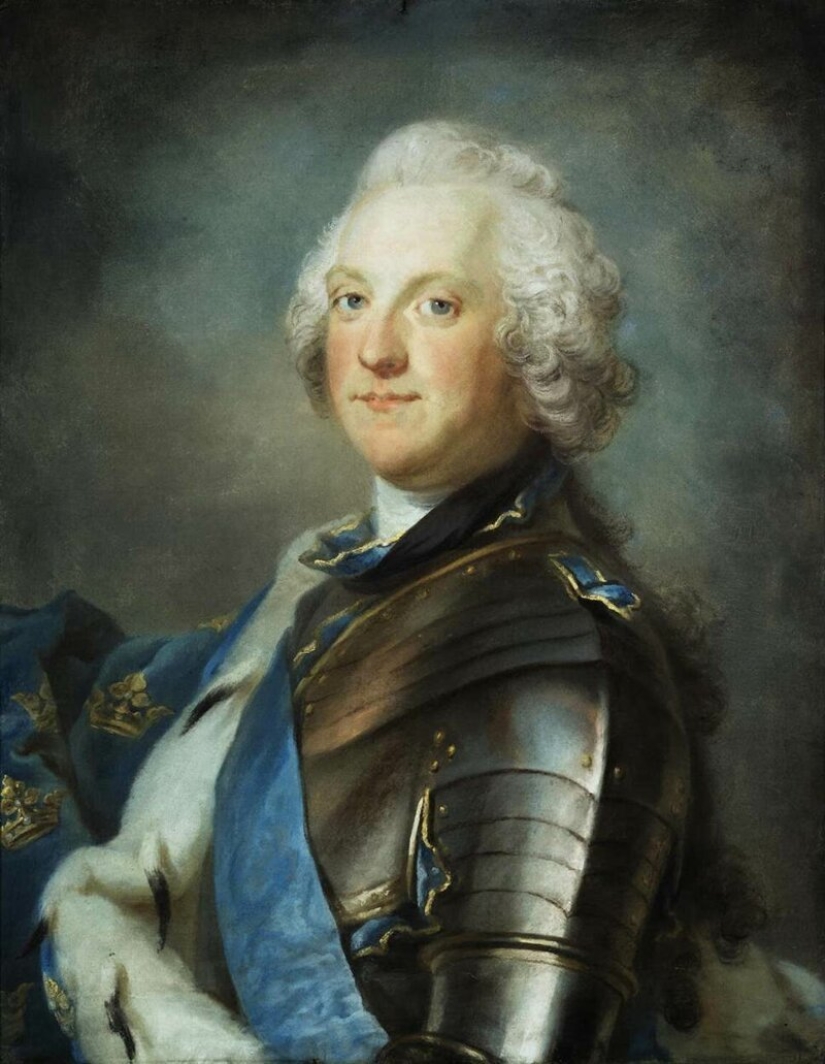
Swedish King Adolf Frederik, 1771: death from overeating
The Swedish king Adolf Frederick, who ruled in the second half of the XVIII century, was a kind, family man. He was fond of making snuffboxes (a worthy occupation for a king) and loved to eat delicious food. The latter was the cause of Adolf's death.
In 1771, in In Stockholm, after a hearty dinner, the king had a stroke, which is not surprising, because at one meal he ate lobster, caviar, cauliflower, squash soup, smoked herring and champagne, and dessert — a muffin with marzipan and milk — was rumored to be served 14 times that day.
Count Johan Gabriel Oxensherna wrote in his diary that "this death was not appropriate for a sovereign, but for a village priest," but the subjects were upset — many people loved the king, despite the fact that he ascended the throne not quite legally — under the pressure of Russia, Adolf Frederick was declared the heir of the childless king Frederick I.
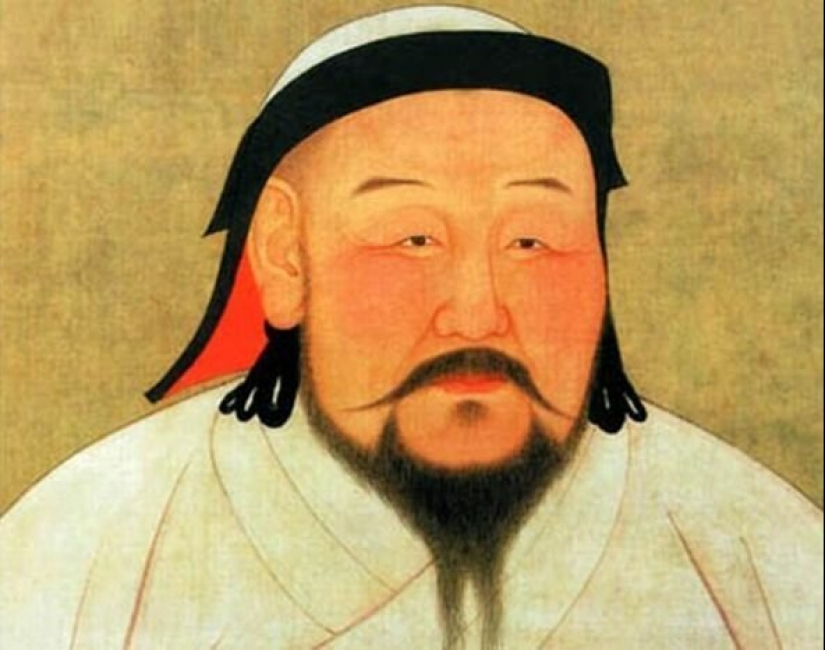
Genghis Khan, 1227: his wife was killed
The great Khan of the Mongols made conquests unthinkable in scale even in our time and especially impressive against the background of the development of transport in the 13th century.
In his horse campaigns, he conquered more than six hundred tribes and peoples, passed through Central Asia, the Caucasus, overcame the Great Wall of China and subjugated northern China. The heirs of Genghis Khan made the Mongol Empire the largest continental state in history, capturing most of Eurasia from Korea to Ukraine.
It is believed that Genghis Khan had about 500 concubines. He liked to take the wives and daughters of defeated leaders to his harem. Later Mongolian chronicles connect the death of the khan with one of these women.
There is a version that Genghis Khan was stabbed at night by a young wife, whom he forcibly took away from her husband. Fearing for what she had done, she drowned herself in the river that night.
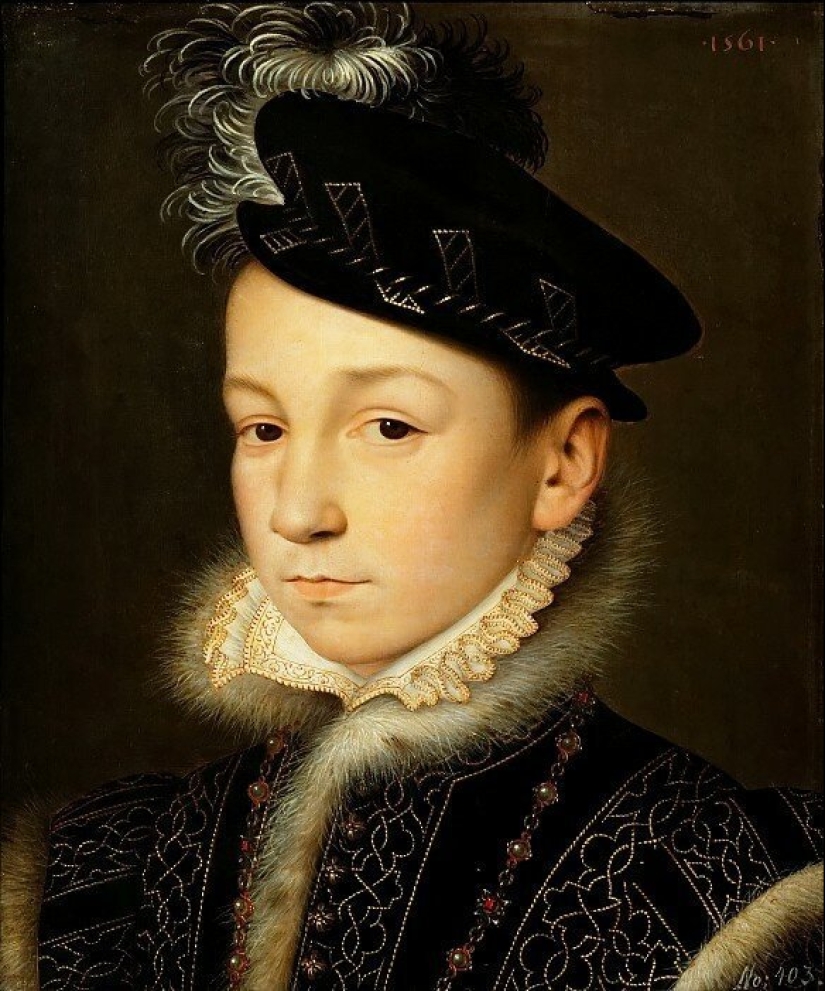
Charles IX of France, 1574: Death by the book
Let's face it, Charles IX was far from the best French king in history. It was during his reign that numerous religious wars occurred and one of the bloodiest and most shameful events in the history of France — St. Bartholomew's Night. They say that the king almost personally killed Protestants under the windows of the palace.
Whether this is true or not, we will never know. So the circumstances of the death of King Charles remained unclear to the end. Officially, it is believed that he died of an illness that worsened after St. Bartholomew's Night (maybe the king was cursed by the dying Huguenots?) at the age of 23.
According to the autopsy report, the cause of death is secondary pleurisy, which developed against the background of a tuberculosis infection. However, historians believe that Charles IX could have died from poisoning with poison, which was soaked in the pages of a book on falconry.
Such an unusual death is believed to have been arranged by his younger brother Henry, who became Charles ' successor on the throne. By the way, both brothers are the sons of the same Henry II, who was killed by a spear fragment at the tournament. An unhappy family, isn't it?
Keywords: The king | Ridiculous deaths | Compilation | Death
Post News ArticleRecent articles

It's high time to admit that this whole hipster idea has gone too far. The concept has become so popular that even restaurants have ...

There is a perception that people only use 10% of their brain potential. But the heroes of our review, apparently, found a way to ...
Related articles

True humanity is revealed in large-scale achievements and resolution of global problems and the daily actions and an open soul for ...

French cinema can easily be called a unique direction in art, which is fundamentally different from what he used to do in ...

Soon the New year, which means it's time to review Christmas movies, buying gifts, planning the celebration and decorate their ...

New Year's is a time to surprise and delight loved ones not only with gifts but also with a unique presentation of the holiday ...